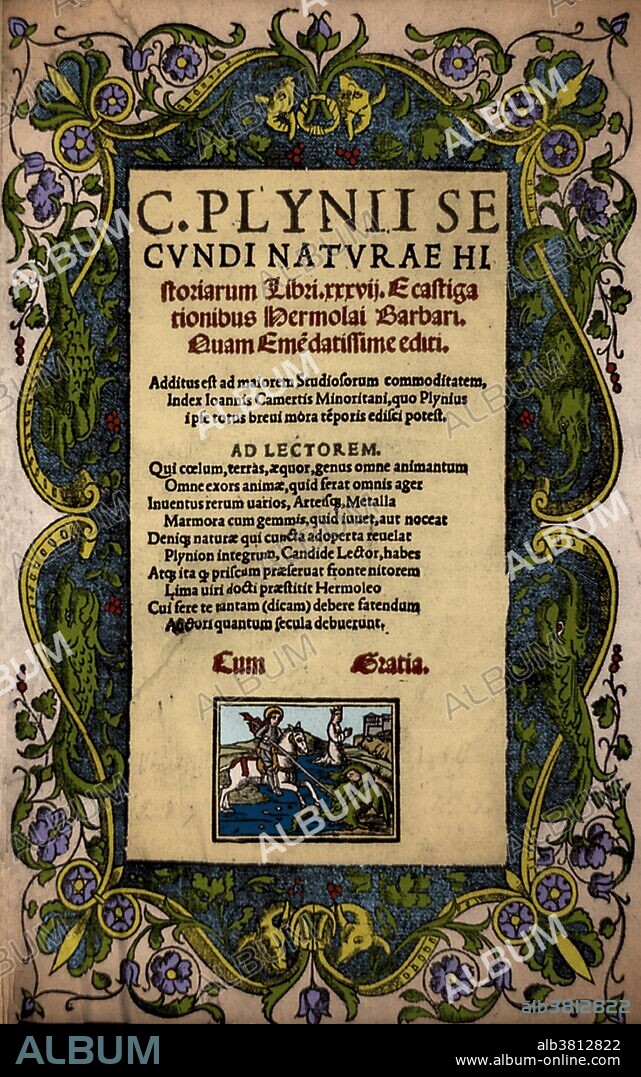alb3812822
Pliny's Natural History, 1519

|
Ajouter à une autre Lightbox |
|
Ajouter à une autre Lightbox |



Avez-vous déjà un compte? S'identifier
Vous n'avez pas de compte ? S'inscrire
Acheter cette image

Titre:
Pliny's Natural History, 1519
Légende:
Voir la traduction automatique
Engraving of title page of Pliny's Natural history, with decorative border of dolphins and illustration of St. Michael lancing dragon, published in 1519. Gaius Plinius Secundus (23 - August 25, 79), better known as Pliny the Elder, was a Roman author, naturalist, and natural philosopher, as well as naval and army commander of the early Roman Empire, and personal friend of the emperor Vespasian. Spending most of his spare time studying, writing or investigating natural and geographic phenomena in the field, he wrote an encyclopedic work, Naturalis Historia, which became a model for all such works written subsequently. He died on August 25, AD 79, while attempting the rescue by ship of a friend and his family from the eruption of Mount Vesuvius that had just destroyed the cities of Pompeii and Herculaneum. The prevailing wind would not allow his ship to leave the shore. His companions attributed his collapse and death to toxic fumes, but they were unaffected by the fumes, suggesting natural causes at the age of 56. This image has been color enhanced.
Crédit:
Album / Science Source / Library of Congress
Autorisations:
Modèle: Non - Propriété: Non
Questions sur les droits?
Questions sur les droits?
Taille de l'image:
3300 x 5271 px | 49.8 MB
Taille d'impression:
27.9 x 44.6 cm | 11.0 x 17.6 in (300 dpi)
Mots clés:
16E SIECLE • 16EME S • AUTEUR • AUTEURS • CÉLÈBRE • CELEBRITE • COMMANDANT DE MARINE • HOMME • ILLUSTRATION • NATURALISTE (PHILOSOPHE) • PERSONNAGES • PERSONNALITÉS • PERSONNE • SEIZIÈME SIÈCLE • VESUVE • VESUVE, VOLCAN • VOLCAN VESUVE • XVIE SIECLE
 Pinterest
Pinterest Twitter
Twitter Facebook
Facebook Copier le lien
Copier le lien Email
Email
